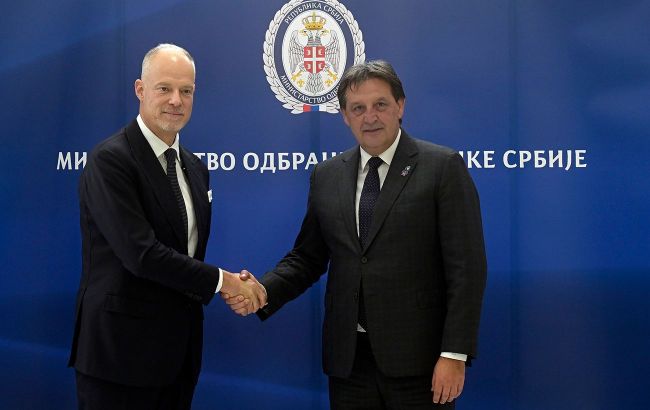Serbia and Hungary strengthen military ties
 Photo: Ministers of Defense of Serbia and Hungary (mod gov)
Photo: Ministers of Defense of Serbia and Hungary (mod gov)
Hungary and Serbia agreed on Tuesday, April 1, to strengthen military cooperation by signing a strategic defense cooperation agreement, DailyNews Hungary reports.
The document was signed in Belgrade by Serbian Defense Minister Bratislav Gašić and Hungarian Defense Minister Kristóf Szalay-Bobrovniczky.
"It is especially important in today’s fast-changing international environment that Serbia and Hungary, two neighbouring countries, conduct frequent high-level consultations to ensure the stability of the region,” Szalay-Bobrovniczky said after the signing.
He noted that Hungary and Serbia maintain the closest bilateral defense and military ties among non-EU and non-NATO countries and highlighted Hungary’s role in modernizing the Serbian armed forces.
The Hungarian Minister added that the strategic partnership between Serbia and Hungary was expanded in 2023 to include defense and military cooperation, with growing interaction between their defense ministries and armed forces.
Under the agreement signed on Tuesday, the two countries will carry out 79 joint programs in 2025, including flotilla exercises, international training for volunteer reservists, and marksmanship drills.
Serbian President Aleksandar Vučić, who attended the signing ceremony, stated that the document provides concrete mechanisms for implementing the defense cooperation agreement reached between Serbia and Hungary in 2023.
Countries friendly to Russia
Both the Hungarian and Serbian governments maintain friendly ties with Russian President Vladimir Putin.
This is one of the key reasons why Hungary remains the main opponent of Ukraine’s accession to the European Union. Budapest continues to block Ukraine’s membership process, as well as military and other forms of assistance.
Recently, Hungarian Prime Minister Viktor Orbán presented Brussels with a list of 12 demands, one of which calls for rejecting Ukraine’s EU membership.
Hungary has also repeatedly delayed the approval of EU sanctions against Russia, often attaching its own conditions.
Meanwhile, in Serbia, Deputy Prime Minister Aleksandar Vulin recently claimed that Russian special services had helped suppress months-long anti-government protests in Belgrade.

